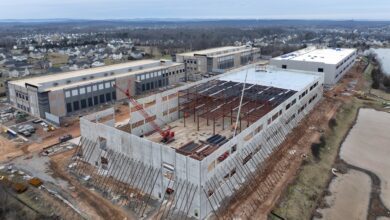
Victoria Spartz’s Town Halls in Indiana: A Microcosm of Republican Turmoil
In the spring of 2025, Indiana’s 5th Congressional District became a battleground for political discontent as U.S. Representative Victoria Spartz, a Ukrainian-born Republican, faced her constituents in a series of contentious town halls. These events, particularly those in Westfield and Muncie, have drawn national attention, reflecting broader tensions within the Republican Party and its base amid the early days of Donald Trump’s second administration. Spartz, the first House Republican in Indiana to hold a town hall after Speaker Mike Johnson advised GOP members to avoid such events, found herself at the center of a storm fueled by frustration over federal spending cuts, allegations of corruption, and the controversial influence of figures like Elon Musk and Defense Secretary Pete Hegseth.
Victoria Spartz’s Role in Indiana Republican Politics
The Westfield town hall on March 28, 2025, set the tone for what would become a recurring theme in Spartz’s public engagements. As reported by Reuters, the event was marked by boos, jeers, and chants of “do your job” from an audience incensed by sweeping federal budget cuts proposed by the Trump administration.
Victoria Spartz, representing a district that includes suburban Indianapolis, had intended to address pressing issues like healthcare reform, balancing the federal budget, and tackling the national debt. However, the discussion quickly devolved into chaos. Constituents, many of whom had voted for Trump in the 2024 election, expressed outrage over cuts they felt disproportionately harmed veterans, healthcare, and education—sectors already strained in Indiana. The presence of Elon Musk as a looming figure in the administration, accused of pocketing billions while these sectors suffered, only added fuel to the fire.
Spartz struggled to maintain control during the Westfield event, often unable to fully answer questions as the crowd’s frustration boiled over. “I will be honest with you, I want to have the conversation,” she pleaded, according to Reuters, but her attempts at dialogue were drowned out by an unruly audience. The scene was a stark contrast to the typically staid nature of congressional town halls, underscoring the deep dissatisfaction among even Republican voters less than 100 days into Trump’s new term.
Town Hall in Muncie, Indiana
The unrest continued at a subsequent town hall in Muncie, where protests outside the venue signaled the growing discontent. Inside, Victoria Spartz faced another wave of criticism, this time centered on her refusal to call for the resignation of Defense Secretary Pete Hegseth and other members of the so-called “Signalgate” group chat.
As reported by The Independent, when a constituent asked if she would demand the resignations of Hegseth, Michael Waltz, and others implicated in leaking top-secret texts, Spartz’s firm “No, I will not demand their resignations” sparked an immediate backlash. The room erupted with boos and chants of “lock him up,” reflecting the crowd’s anger over perceived corruption and incompetence within the administration. Hegseth, already a polarizing figure due to allegations of drunkenness on the job, became a lightning rod for broader grievances about the GOP’s direction.
Republican Party’s Deep Divide
These town halls also highlighted internal party dynamics. Speaker Johnson’s advice to skip such events stemmed from a fear of the very backlash Spartz encountered—a fear rooted in the GOP’s struggle to reconcile its populist rhetoric with the practical implications of its policies. Social media reactions captured on X further amplified the divide. A post by:
@PopularLiberal on April 1, 2025, claimed Indiana Republicans were “done” with Musk and Trump “stealing our hard-earned money,” echoing sentiments heard at Spartz’s events. Replies to the post ranged from accusations of paid operatives creating discord to defenses of Trump’s mandate, with one user noting, “Trump won the popular vote. He is doing exactly what the majority voted for.”
Spartz’s town halls have become a microcosm of the Republican Party’s broader challenges in 2025: balancing the expectations of a base that delivered Trump a second term while navigating the fallout from controversial policies and figures. For Spartz, a lawmaker known for her fiscal conservatism, these events have tested her ability to connect with constituents who feel betrayed by the party they once trusted. As the Trump administration approaches its 100-day mark, the unrest in Indiana suggests that the GOP’s internal fractures may only deepen, with figures like Spartz caught in the crossfire of a party—and a nation—at a crossroads.






